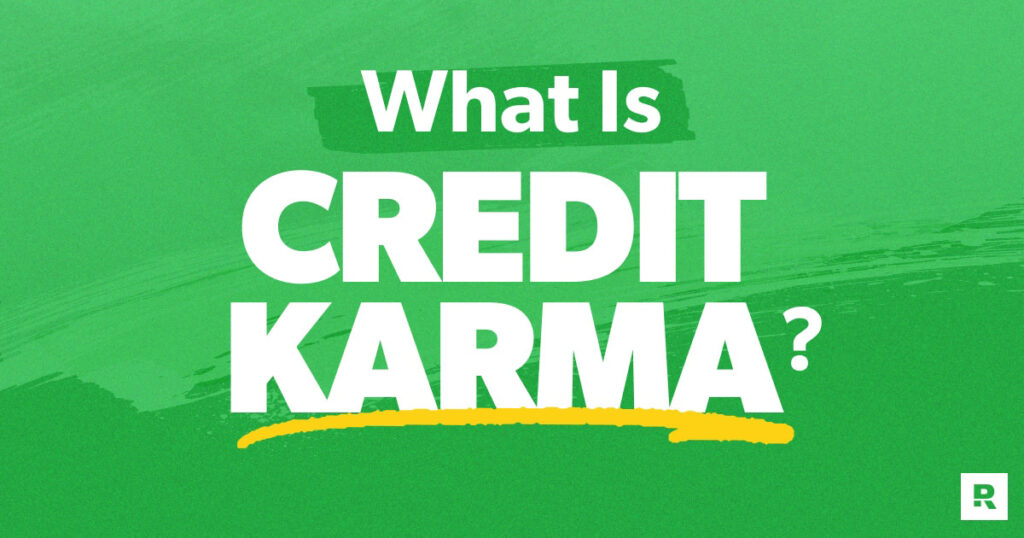In case you haven’t heard, the Mint budgeting app is shutting down. And their users are being asked to move to . . . Credit Karma.
But if you’re a Mint user who thinks you’ll be able to keep budgeting the same way, you’re going to be pretty disappointed. Because, ultimately, Credit Karma is not a budgeting app.
Let’s talk about what Credit Karma is and what they actually offer.
What Is Credit Karma?
Created in 2007, Credit Karma is a company best known for giving free access to credit scores and credit reports. They’re owned by Intuit—the same company over TurboTax, QuickBooks and (formerly) Mint.
But don’t let those recognizable names fool you. Credit Karma doesn’t help you manage your money better. They claim to be “championing financial progress for all.”1 But, in reality, they trap you into a credit cycle that’ll have you falling even further behind.
In addition to providing credit scores and reports, Credit Karma also pushes people to build their credit. They offer credit monitoring, insights into what affects your credit score, and personalized recommendations for how to increase your credit score.
But let’s be clear: The only thing they’re recommending is debt—credit cards, personal loans, auto loans, etc. You know what they say about karma: What goes around comes around. And in this case, that’s debt.
Is Mint Moving to Credit Karma?
Kind of. Starting March 23, 2024, Mint users will no longer be able to access their budgeting accounts. And even though they’re being encouraged to pack up their financial data and move over to Credit Karma, they won’t have the same budgeting experience they were used to.
Because like we said before, Credit Karma is not a budgeting app.
Mint says their users will still have access to “some of Mint’s most popular features,” except the main one: budgeting.2 With Credit Karma, they’ll be able to track their net worth, view their transactions, and keep track of their monthly spending. But they won’t be able to actually budget—as in, make a plan for their money for the month ahead.
So, what happens to all that data? Good question. Mint users can bring “the majority of [their] Mint financial account balances, historical net worth, and 3 years of transactions over to Credit Karma.”3 They can also choose to download a full history of their transactions if they want.
Because once March hits, all their data will disappear from Mint . . . and then Credit Karma will use it to sell them debt. Womp womp.
How Does Credit Karma Work?
Once you download the Credit Karma app and create an account, you’ll get your credit scores from two of the major credit bureaus: TransUnion and Equifax. Credit Karma uses your scores to diagnose your current “credit health,” which ranges from very poor (less than 500) to excellent (781–850). You’ll also be able to see your full credit report and how your credit history impacts your score.
Then (and this is the part you need to watch out for!), Credit Karma hits you with offers that could help you improve your credit score. These offers (aka targeted ads) can be anything from a certain type of credit card to a personal loan—or even a home loan.
Pay off debt fast and save more money with Financial Peace University.
Basically, the goal here is to make you want a better credit score or maintain your current score. Either way, Credit Karma is going to push you to take out more debt—so they can give you a higher score. It’s convenient for them (and dangerous for you).
Is Credit Karma Accurate?
There’s been some debate about whether Credit Karma actually gives accurate credit scores. This is mostly because they use the VantageScore 3.0 model rather than the well-known FICO score.
Not every lender uses the same source to check people’s credit. But since VantageScore was developed by the three major credit bureaus, the scores Credit Karma gives you are considered accurate. The exact number may be off by a few points from other credit-scoring systems. But whatever range the score falls into (very poor, poor, fair, good, very good or excellent) should be about the same.
Just remember: An accurate credit score isn’t an accurate representation of how well you manage your money (more on that in a bit).
How Does Credit Karma Make Money?
As much as Credit Karma loves to brag about how their services are free, they’re still a for-profit company. They get paid to send you curated recommendations (which, again, are just targeted ads based on your credit history) for debt.
Because, according to Credit Karma, you need to borrow more money . . . so you can increase your credit score . . . so you can borrow more money . . . (well, you see where this is going).
Credit Karma also says they don’t share your personal data with third parties. But they don’t need to sell your info to other companies when they’re already sending you to those debt products themselves! Yeah, they know exactly what they’re doing.
Is Credit Karma Safe?
Hmm . . . that depends on what you mean by “safe.” Credit Karma’s got the fancy 128-bit encryption—so, technically, your personal info is secure. But can you fall deeper into debt if you use Credit Karma? Absolutely!
Being “prescribed” debt isn’t safe. Debt equals risk. And the more money you borrow, the more likely you are to fall behind on payments, fork over huge amounts in interest, and even lose your car or home. Any company that constantly encourages you to borrow money is one you shouldn’t trust.
Does Using Credit Karma Affect Your Credit?
Using the Credit Karma app to find out your current credit score and access your credit report won’t affect your credit. But applying for the offers they send you can.
See, when a lender checks your credit report as part of the credit card or loan application process, it’s called a hard inquiry, and it dings your credit score a little every time.
Credit Karma’s Approval Odds feature is supposed to match you with credit cards that you’re more likely to get approved for—so you don’t have too many hard inquiries affecting your credit. But Credit Karma’s gotten in trouble for overpromising in this area.
In fact, in September 2022, the Federal Trade Commission said that Credit Karma “deployed dark patterns to misrepresent that consumers were ‘pre-approved’ for credit card offers.”4 In other words, Credit Karma encouraged people to apply for certain credit cards by saying they had a 90% chance of getting approved—when that wasn’t the case. As a result, Credit Karma was ordered to pay $3 million to the consumers who applied for credit cards due to deceptive approvals.
So yeah, applying for the offers Credit Karma recommends can definitely affect your credit. But you don’t need to get wrapped up in the whole credit game in the first place. A credit score is just an “I love debt” score, and a high credit score doesn’t mean you’re actually good with money. Believe it or not: You don’t need a credit score to manage your money with confidence and hit your goals—no matter what Credit Karma says.
And while you should check your credit at least once a year to make sure nothing fishy is going on, you don’t need Credit Karma to do that. Just request a free credit report from the three major credit bureaus (Equifax, Experian and TransUnion).
Get a Budgeting App That Actually Helps You Budget
As you can see, Credit Karma can’t give you the budgeting experience you need (or even a real budgeting experience, for that matter). But EveryDollar can!
EveryDollar is the best free budgeting app on the market. You can customize your budget lines, track and split transactions, set due dates for bills, and get customer support from real human beings. Plus, you get other helpful budgeting features (like bank connectivity and paycheck planning) if you upgrade to our premium version.
Oh, and we’ll never shove credit card ads or any debt down your throat. Because, unlike Credit Karma, we want to help you live your best debt-free life!
So, don’t quit budgeting because your budgeting app quit you. Create your free budget with EveryDollar. Or if you’re a Mint user, snag two free months of our premium version while you can!
Read the full article here
















